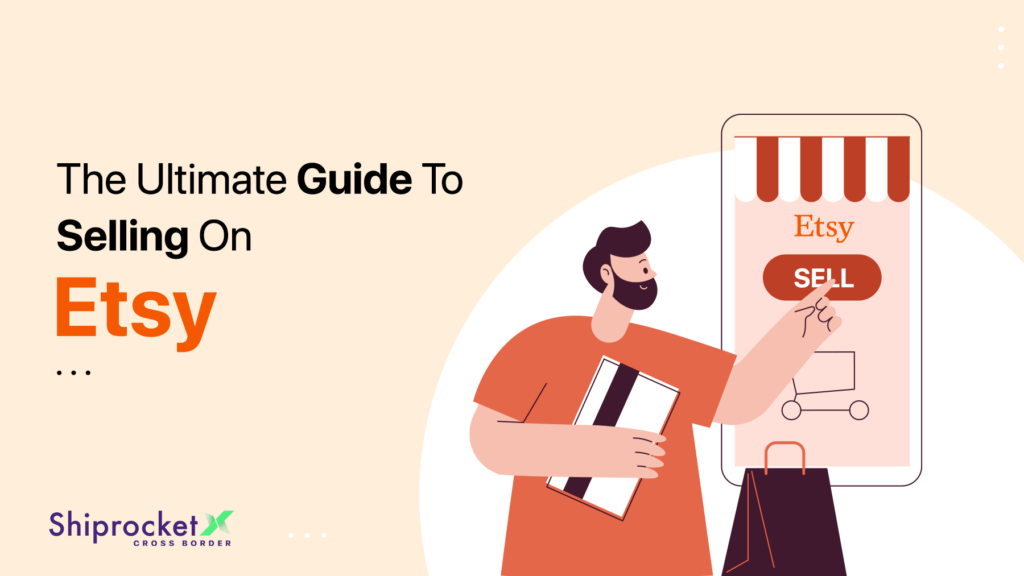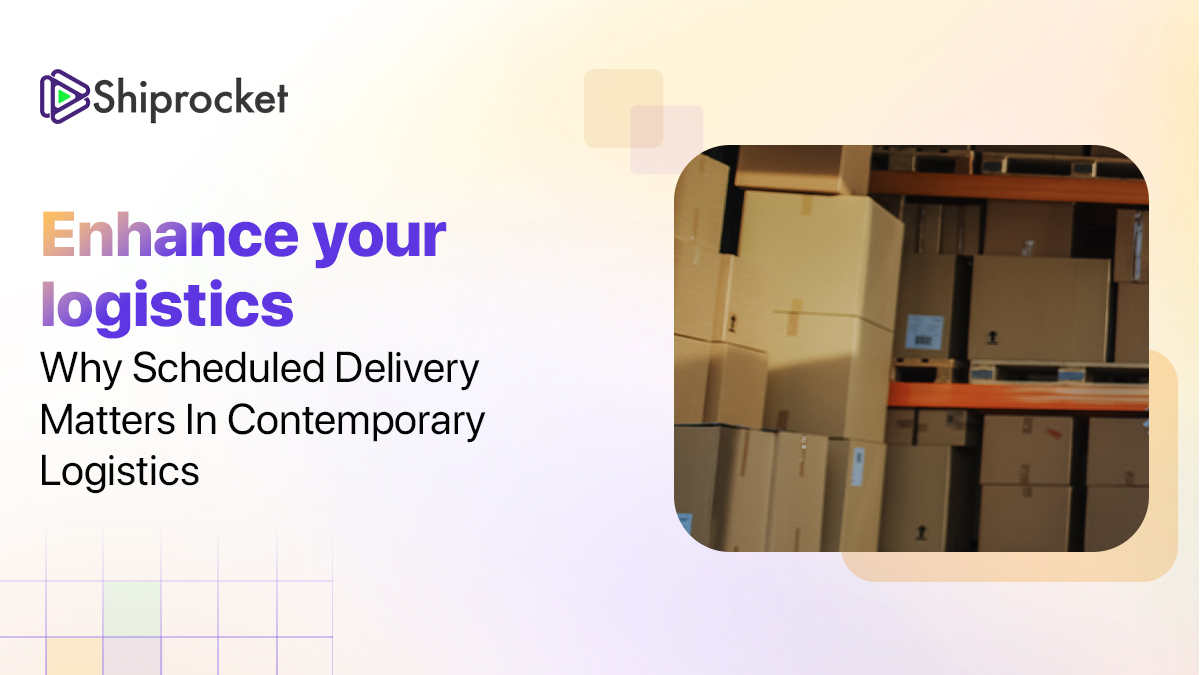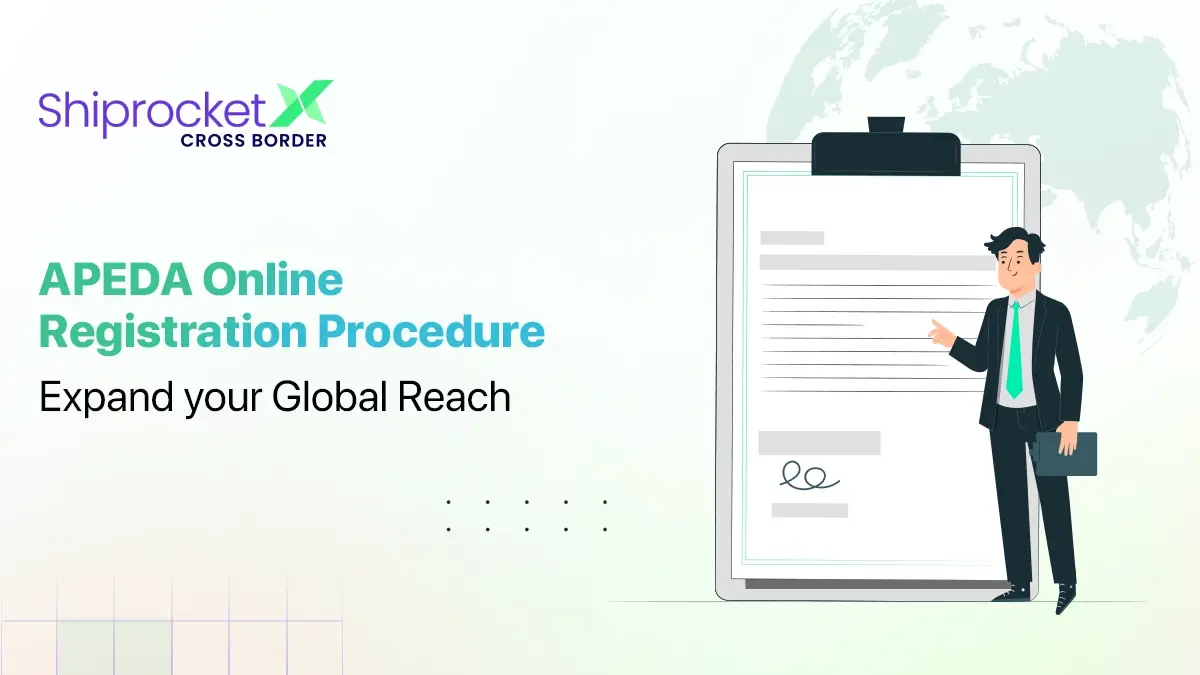How To Sell On Etsy From India: A Quick Guide
- What are the Rules for selling on Etsy?
- Why Should You Sell On Etsy From India
- 1. Extended Reach
- 2. Mobile-Friendly Experience For Buyers
- 3. Personalised Customer Engagement
- 4. Niche Markets
- 5. Easy and Fast Setup
- 6. Low Initial Investment
- 7. Marketing Made Simple
- 8. Abundant Learning Materials
- 9. Personalised Storefront
- 10. Branded Storefronts
- 11. Print-on-Demand
- 12. Shipping Policies
- 13. Etsy’s Offsite Ads
- How To Start Selling On Etsy India
- Simplify Your Etsy Selling Experience with Shiprocket: Your Trusted Shipping Partner
- Final Words!
The surge in worldwide e-commerce has prompted Indian sellers and exporters to embrace leading platforms like Etsy for their business expansion. Among approximately 50 million products available on Etsy, over 650,000 are sold by Indian sellers, highlighting their growing presence and participation in the global e-commerce landscape.
According to a recent report, Over 40 lakh personalised products were sold by Indian sellers to buyers from across the globe. Noting the surge in the number of Indian sellers on the platform, Etsy now has a dedicated team in India to support exporters and sellers onboard with ease and sell across the globe seamlessly.
Here are the top reasons you should sell on Etsy India if you are an Indian local business looking to take your business global. We will also explore some rules that you must consider before starting to sell on Etsy.

What are the Rules for selling on Etsy?
- Etsy stands out among marketplaces. Here, you focus on vintage, handmade, or craft supplies. Vintage items must be at least two decades old.
- You must create or craft the items you sell. Selling handmade items from other Etsy sellers is against the rules.
- If you work with partners in production, you must inform customers. However, your partners cannot be other Etsy members or suppliers providing pre-made products.
- When it comes to craft supplies, you’re free to purchase from third-party sellers, whether commercial, vintage, or handmade.
- Each listing should directly offer a physical or digital item. Activities like using referral codes or posting want ads are not permitted.
- Avoid selling products from merchants not connected to your business, trade fair items you didn’t create, or repackaging commercial items.
- Using AliExpress for dropshipping on Etsy is strictly prohibited.
Why Should You Sell On Etsy From India
1. Extended Reach
Etsy is helping artisans like carpet weavers in Mirzapur and artisans in Jammu, who were not connected before, to start their shops and be successful. They are doing this in India, and their goal is to help sellers reach more people and teach customers about the unique and personalised things they sell.
2. Mobile-Friendly Experience For Buyers
The Etsy platform is extremely mobile-friendly, and for buyers choosing to shop on mobiles rather than on desktop screens, the buying experience is seamless. Your customers can browse, check, and shop, all in a matter of minutes without any hassles.
3. Personalised Customer Engagement
Since Etsy is a platform that specialises in gift items, you can constantly personalise your orders for your customers with creative packaging, storytelling in product descriptions, and quirky product names to go with your products. This piques your buyers’ interest and urges them to make purchases.
4. Niche Markets
With Etsy catering to only gift items and products that fall under the homemade goods and crafts category, you can serve buyers specifically looking for your products in any part of the world. This helps to create a healthy demand and profit balance for your business in the long run.
5. Easy and Fast Setup
Starting your shop on Etsy is easy; it takes less than 10 minutes. No need for tech expertise or monthly fees. You only pay when you’re ready to sell your first item.
6. Low Initial Investment
Etsy’s fees are minimal compared to other platforms. For instance, while Amazon Handmade takes 15% of each sale, Etsy charges just $0.20 per listing. With Etsy, you don’t need a hefty upfront investment. Setting up your own online store requires upfront payment for design, hosting, and domain.
7. Marketing Made Simple
Etsy provides various marketing tools, both on and off the platform. From ads and discounts to social media integrations, promoting your Etsy shop is straightforward. Compared to promoting your own website, Etsy’s tools require less effort and resources.
8. Abundant Learning Materials
Etsy offers a wealth of resources to help you succeed. The Seller Handbook covers topics like SEO and audience building. Additionally, there are online courses and analytics tools available. Etsy’s community page allows you to connect with other sellers for valuable insights and support.
9. Personalised Storefront
Etsy offers a customised storefront, just like having your own online shop. You can showcase all your products in one spot, add your logo and taglines, and set your shop policies.
10. Branded Storefronts
Many Etsy sellers have personalised their storefronts with unique branding. They feature products in cover photos and highlight causes they support. Some even integrate their Instagram accounts for a more personal touch.
11. Print-on-Demand
Etsy now allows sellers to offer print-on-demand products, like custom-printed T-shirts, mugs, and cushions. This means you can sell your own designs on various items without worrying about inventory.
12. Shipping Policies
Sellers on Etsy have full control over their listings, including shipping, refund, and exchange policies. You can tailor these policies to suit your business needs.
13. Etsy’s Offsite Ads
Etsy has introduced a new feature called Offsite Advertising, which replaces the need for sellers to invest in Promoted Listings and Google AdWords. With Offsite Advertising, Etsy promotes your items on and off the platform, and you only pay when a customer clicks on the ad and makes a purchase within 30 days.
How To Start Selling On Etsy India
1. Choose a Niche Product
To begin selling on Etsy, it’s important to select a specific product niche. Start by identifying what you want to sell, considering your interests and skills. Then, research the market on Etsy to find out which niches are the most profitable. Make sure to choose a niche with enough demand to ensure success in the marketplace. By following these steps, you can lay a strong foundation for your Etsy selling journey.
2. Create A Seller Account
To begin selling on Etsy, start by making a seller account. Sign in with your business email address and set up your account with proper details and password. Verify your details as required, and your registration process is complete. Verification is important, so follow the instructions carefully to keep your account secure. Please ensure you double-check your registration details and save them before you submit the form for smooth login.
3. Go To Sell On Etsy
To start selling on Etsy,
- Visit the Etsy website and click on “Sell On Etsy” in the footer section.
- Choose either “Get Started” or “Open your Etsy shop” based on your situation.
- Signing up is free, so there are no charges associated with creating an account.
- Once signed up, you can begin listing your products and start selling on Etsy’s platform.
4. Create Your Etsy Storefront
Setting up your shop on Etsy is the first step. Begin by signing up for an account and customising your shop preferences. Choose your language, selling country, and currency to tailor your storefront to your target audience.
5. Add Products
Once your shop is set up, start adding your products. Ensure each listing includes high-quality photos and detailed descriptions. Remember, the internet is visual, so make your listings appealing. Use SEO techniques to improve your products’ visibility in search results.
6. Determine Payment Method
Decide how you’ll accept payments from customers. Etsy offers various options, including bank transfers and digital wallets. Provide accurate payment details to avoid any payment issues. Double-check your information to ensure it is correct.
7. Make a Sales & Pricing Strategy
Before you begin listing your products, it’s crucial to develop a clear sales and pricing strategy. This involves considering taxes and tariffs in the buyer’s country, determining the payment currency, and establishing a language that suits your target buyers in the destination market.
8. Set Up A Payment Gateway
Etsy leverages all kinds of prepaid payment modes, including credit and debit cards, PayPal, Google Pay, Apple Pay, and gift cards. You can use any of these to accept payments from your customers globally. Please ensure whichever payment method you choose to incorporate is 100% safe and bug-free.
9. Promote Your Products
After launching your store and products on Etsy, it’s important to establish a noticeable presence among potential buyers. One effective approach for new listings is to promote your products through marketing tactics. You can initiate sales on the platform or share updates on social media channels. Additionally, optimising your product descriptions for SEO can help attract buyers to your product pages more easily.
10. Choose Reliable Shipping Service
When selling items online, especially on a global platform, having a reliable shipping service is crucial for fulfilling orders. For instance, services like ShiprocketX can integrate with your Etsy store, simplifying the process of shipping packages to customers after they make a purchase from you.
Simplify Your Etsy Selling Experience with Shiprocket: Your Trusted Shipping Partner
Begin your selling journey on Etsy with Shiprocket as your trusted shipping partner, ensuring seamless deliveries for your customers. Access various services to optimise your international shipping experience, from domestic to international shipments. Join a community of over 167,000 satisfied sellers, managing shipments effortlessly on our user-friendly platform. Explore options for B2B shipping and hyperlocal deliveries with ease. Experience Shiprocket’s capabilities firsthand through our live demo feature, without any commitment.
Expand globally with cross-border shipping to over 220 countries and territories, including transparent B2B deliveries via air. Prioritise customer satisfaction with comprehensive fulfillment solutions for both B2C and B2B orders. Utilise omnichannel experiences and automated marketing campaigns to drive conversions and increase retention. For domestic shippers, an extensive courier network covering 24,000+ pin codes helps fulfill orders from anywhere, seamlessly managing all aspects of your business on one platform. Join Shiprocket today to succeed in the world of e-commerce on Etsy.
Final Words!
Etsy, established in 2005, has evolved into a vibrant platform connecting India’s skilled artisans with a global audience. It’s more than just a marketplace; it’s a community built on originality, creativity, and personal touch. Starting an Etsy store can be lucrative with consistent effort and discipline. Like other digital platforms, Etsy thrives on audience engagement and reach, requiring ongoing improvement.
While relatively new to the Indian marketplace, Etsy offers significant potential for local products to gain global visibility. Its seller charges are reasonable, providing Indian creators with a platform to showcase their work worldwide.
Despite being in competition with giants like Amazon or eBay, Etsy has carved its niche as a hub for handmade and vintage goods. It offers a unique space for one-of-a-kind and precious items.
Understanding how to sell on Etsy and what products perform best is crucial for success. Take the first step into online selling, choosing a reliable shopping service that meets your needs. You’re one step closer to achieving your goals.





